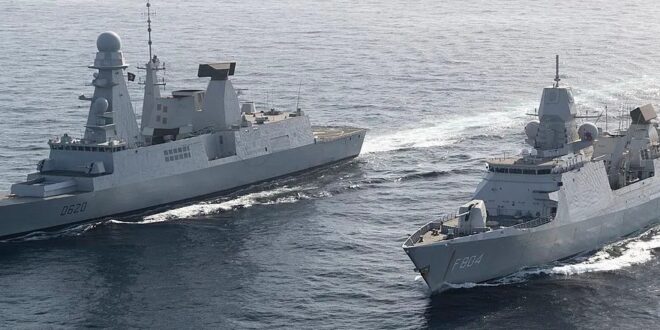This Occasional Paper examines the emergence of European-led ad-hoc military coalitions, why these forms of cooperation have emerged and what value they add to the existing European security architecture.
Europe’s security architecture is dominated by NATO and the EU. They are, respectively, the primary hard and soft security providers to the continent, with 21 European countries holding membership of both organisations. However, there has been a gradual proliferation of additional bilateral and minilateral frameworks and initiatives. This is a result of the recognition that large multinational organisations are no longer sufficient to cover the breadth of European security challenges.
Since early 2020, ad-hoc military ‘coalitions of the willing’ and security initiatives operating beyond Europe’s borders have emerged. They largely function outside existing European security mechanisms. This Occasional Paper argues that the emergence of European-led ad-hoc military coalitions shows the greater flexibility and pragmatism being introduced into the continent’s security architecture. Moreover, they add considerable value to European countries as they allow them to bypass slow and politically convoluted processes and frameworks. They enable the quick deployment of military capabilities to address instability and provide a European presence in areas across the globe, and a method to bridge the growing political fragmentation within Europe.
Key Points
Europe will remain reliant on US military capabilities to support ad-hoc coalitions of the willing. European expeditionary operations are directly and indirectly supported by the US, including for the provision of key capabilities, especially combat enablers such as ISR, strategic lift and logistics capabilities. Despite European capability development in these areas through Permanent Structured Cooperation projects, the reliance on US capabilities will remain in the short term.
France has been the most comfortable with taking a leading role in ad-hoc coalitions, with Germany preferring to provide political support rather than military contributions. In addition, a small number of European countries have shown greater willingness than others to contribute political and military support to missions.
Ad-hoc coalitions are attractive options for Europe as they allow mobilisation of its varied resources in functional, flexible and task-oriented coalitions, which can be platforms for enhancing European interoperability through operational experience.
Despite the limitations of Western expeditionary operations since 9/11, exemplified by the outcome in Afghanistan, European countries and organisations continue to develop command and control arrangements and capabilities for these types of operation. Eurasia Press & News
Eurasia Press & News




